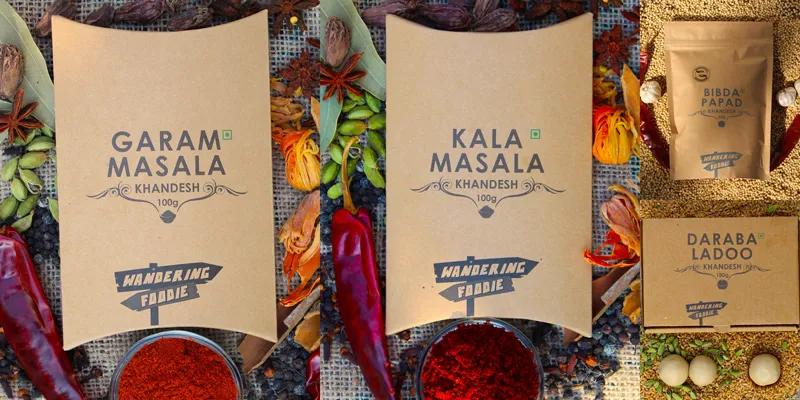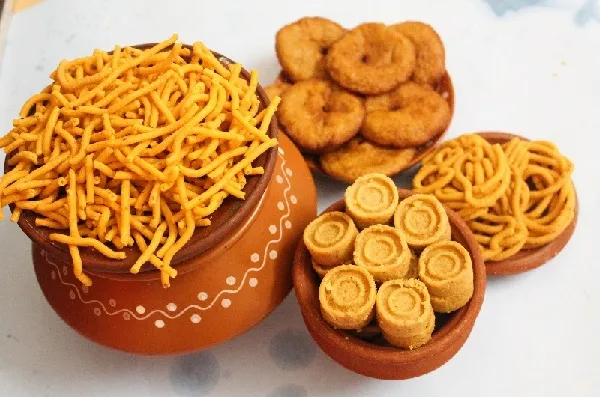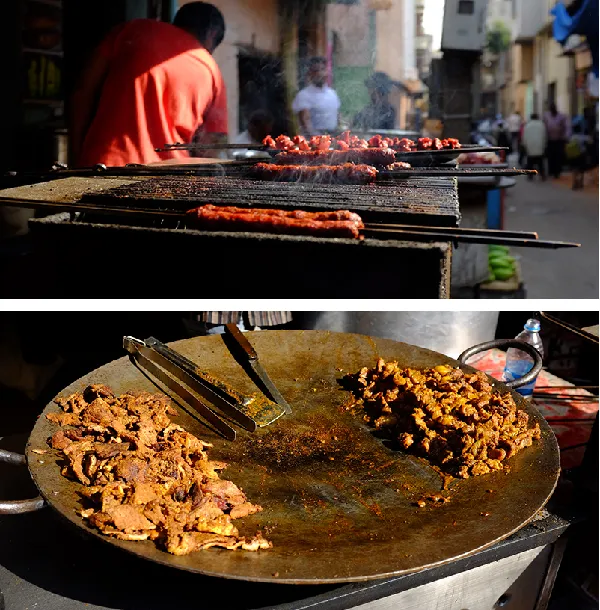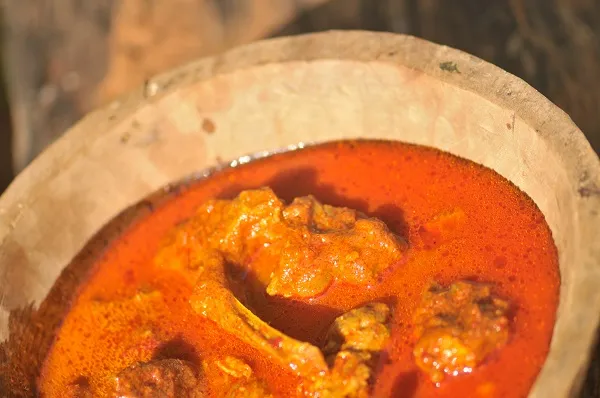Taste of nostalgia: online startups cash in on the close links between food and identity
When I travel back from Kerala, my bags are typically loaded with banana chips, roasted coconut powder, tender mangoes in brine and at least a packet of the finest Telicherry pepper. A Tamilian’s bags might reveal appalam, murukku and a host of masala mixes; a Bihari will definitely carry sattu. Ask anyone living away from their state of origin what they miss about ‘home’ and chances are you will get a list of food specialities.
It isn’t like I don’t get banana chips in Bengaluru or good quality pepper, but there is something missing – it doesn’t taste of home.
The urban Indian today is adventurous when it comes to food, comfortable with a plethora of cuisines – from Italian to Japanese. These foods, considered 'exotic' before, are no longer hard to get in any Indian metro. But identity, nostalgia and memories are all closely tied up with the food we were brought up on. And for many of us urban Indians—essentially migrants who have moved in search of work—it is this food that is the new exotic. An aviyal that takes me back to summers spent in my grandmother’s house would more easily get my money than the best foie gras flown in from France.
A group of intrepid entrepreneurs have realised that there lies within the high-rise apartments and glass-and-chrome offices of metro India an untapped market - people who are hankering for regional specialities from their home state.

Migration and recreating childhood memories
Perhaps no other company has capitalised on this link between memories, nostalgia and food like Hector Beverages has with their Paper Boat brand. Launched in August 2013 with jal jeera and aamras, the ethnic drinks brand today offers 12 variants, of which eight are on shop shelves all year round while the rest are seasonal. These include such unique regional specialities like panakam, a traditional jaggery-based drink made in South Indian Brahmin homes, primarily on Rama Navami. The strategy of focussing on Indian drinks has worked well for the company, with sales touching Rs 72 crore in FY 2015-16. However, losses stood at Rs 84 crore in the same period, mostly due to marketing costs and the setting up of a Rs 30-crore manufacturing unit in Mysuru. The seven-year-old firm, backed by the likes of Sequoia Capital, Catamaran Ventures and Sofina, has forayed into ethnic foods by launching chikki, the popular peanut-based traditional snack. Neeraj Kakkar, co-founder and CEO of Bengaluru-based Hector Beverages, the company behind the Paper Boat brand, says:
Traditional food and drinks bring a sense of belonging and identity. It provides a security blanket in an alien place."
Karur, on the banks of River Amaravathi in the heart of Tamil Nadu, is just a couple of hundred kilometres away from Bengaluru, but the two business centres have little in common, at least on the surface. The historic town of Karur, which was a trading centre even during the Sangam period, is known today as a centre of home linen manufacturing. It is from a three-bedroom apartment in this town that a barely three-year-old startup is taking Tamil specialities like Palani panchamirtham, Srivilliputhur palkova and Velliyanai adhirasam to the rest of India. The idea of Native Special came about when two brothers, Baskaran Veluchamy and Parthiban Veluchamy, originally from the temple town of Palani, went to Chennai and the US, respectively, for work after completing their engineering programmes, and began missing their hometown specialities. “My brother was in the US. He missed the food, snacks and sweets of home. His friends shared the same sentiment. I was living in Chennai then and though that is not too far from Palani I was also not able to get food like the panchamirtham. We realised there’s a business here,” says Baskaran, who moved to Karur to set up the company. His brother will join the operations full time in a few months.

Native Special, which raised funding from Indian Angel Network (IAN) and Native Angel Network in January, procures the products from small producers, who are mostly located in Central and Southern Tamil Nadu. The quality checks and packaging is done at the company’s unit in Karur. While initially Native Special offered a few food specialities of other States, Baskaran decided to focus on Tamil Nadu products due to supply chain complications. That strategy has worked for them with the company delivering products even as far as Jammu and Kashmir and Nagaland. Native Special, which has a six-member team, is targeting Rs 1.5 crore next fiscal.
Internal migration is a big phenomenon in India with search for jobs and marriage leading millions of young men and women to move away from their place of birth. The 2001 census showed 307 million internal migrants and by 2011 it is estimated that the number went up to 400 million. A vast majority of migrants who moved in search of employment fall in the category of unskilled and semi-skilled labour and so are not the target customers of these startups. There is no clear data on the number of educated migrants who work at the many corporates, or study in colleges across the country. However, take a look at the campus hiring of a company like Infosys and we can begin to grasp the size of this population of educated migrants. In 2016 the IT major made 20,000 campus offers for just hiring freshers and most of them will be staying away from their places of birth. Take a different statistic – regional brands have a 13-percent share of the $44 billion packaged foods market according to market research firm Nielsen India. Look at it any which way, the potential market for companies making or distributing regional food specialities is big.

However, it was an interest in food, especially in the revival of Indian regional goodies, and anecdotal evidence that led many founders of the startups in this space down the entrepreneurial road. “We used to enjoy the food that our office team members brought back. But we were also becoming couriers for team members whenever we travelled to their home states. We realised there was this unfulfilled demand to get these food stuffs regularly. It was not just an indulgence. We found enough people in our lives who were willing to even pay extra for such food stuff,” says Ashish Nichani, who co-founded online marketplace for speciality foods Place of Origin in 2014. A year ago ethnic e-tailer Craftsvilla acquired Place of Origin, but operates it as a separate website. Food now accounts for five percent of Craftsvilla’s sales, with Ashish claiming that Place of Origin sales volumes have grown over 10 times since acquisition. The site offers products from 300 small and big regional producers like the 175-year-old 'Babusingh Thakur Pedhas' from Dharwad, the iconic 'Flurys' from Kolkata and 'Maganlal Chikki' from Lonavala.
The draw for customers is the chance to savour once again the tastes of home and childhood. Anup Nemchand Patil represents a Singapore-based building automation company in South Asia and Middle East and lives in Mumbai. Last Diwali he was hunting for some unique gifts for his corporate clients. Then a professional contact told him of a culinary experience of the Khandesh cuisine organised by a startup called Wandering Foodie that he had participated in. Anup, who is from the Khandesh region of Maharashtra, was intrigued. On the company’s site he discovered products from the region also being sold. He promptly bought the 'Daraba Ladoo', a regional speciality made primarily of wheat and ghee. “The taste of the ladoos is exactly what I remember, but now you don’t get that taste even at home,” says Anup, who bought 100 boxes of the ladoos to gift his clients during Diwali and regularly buys the ladoos for his consumption.

IIM-Ahmedabad graduate Rahul Patil launched Mumbai-based Wandering Foodie in late-2014 to offer culinary discovery tours of the Khandesh region. With the help of his mother, who oversees the cooking, Rahul offers guests a chance to try out local dishes paired with local wines in Nashik. He has since expanded operations to offer walking tours of Mumbai, which explore various cuisines like Parsi, Sindhi and Maharashtrian. It was while operating the Nashik tours that Rahul realised that many guests wanted to take back some of the dishes and masalas they had tried. So he started the packaged foods segment on a very small scale last January. But then Amazon chose his products for the Amazon Launchpad a couple of months back and he saw orders zoom up. Rahul says:
Most of the customers are originally from Khandesh but live elsewhere. The nostalgia factor is very strong. We get regular calls thanking us for giving them a taste of their childhood.”
The company is targeting Rs 2 crore revenue next fiscal. While tours still form a major source of the company’s revenue, Rahul expects the packaged foods category to become the revenue-puller. “There is a limit of how much we can scale up tours. Products will be our volume game, while tours will be value game,” he says.
Keeping it fresh
While the demand is strong getting these products, many with no preservatives, across the country without any deterioration is not an easy job. Curation is the first defence. The companies pick products that have a naturally long shelf life, and they also clearly mention the number of days within which the product should be consumed. But figuring out demand cycles and stock requirements have been a matter of mostly trial and error. Baskaran says:
In the initial days we had major issues with demand and supply and so a lot of wastage. The products we have now have minimum shelf life of 30 days and we clear stock in under five days. In the last one year we haven’t faced shelf-life issues. But each time we launch a new product we need to figure out the demand cycle from scratch, and then there are seasonal fluctuations. Planning is a daily affair.”
Baskaran decided to do the packaging at his unit to have greater control over stock. With the process in place, Baskaran now intends to start offering regional foods of other states in a few months.
There are product-specific issues too. Like when Place of Origin decided to supply fresh Alphonsos. Due to the nature of mangoes the team had to restrict orders to metros and even then there were complications. “We worked with farms directly. The further the customer from the farms in Ratnagiri the earlier the mangoes would be picked so they reach the customer at the right level of ripeness,” says Ashish.
Food migrates too
As the companies grew in operations they noticed something else as well. While many started out on the premise that people who are from a region will buy products of that area the customer names began revealing a whole different story. True South, a Bengaluru-based firm that offers South Indian style filter coffee decoction with a shelf life of months without any preservatives, started retail operations by selling on Amazon mid last year. Harish Mithra, one of the co-founders of True South, says:
We thought it would be South Indians living elsewhere who would buy our products. But when we look at the names of customers who place orders we see a huge number of typical North Indian surnames."
The firm sees retail sales of over 1,200 units a month. It was launched three years ago as a B2B venture, with the decoction being sold to hotels. B2B still accounts for 95 percent of sales for the firm. Harish’s co-founders, Harold Pereira and his son Gaurav Pereira, come from a family of coffee planters with their own agri businesses. It was Harold who came up with the idea of packaging filter coffee decoction 16 years ago and spent over a decade researching ways and means of extending the decoction’s shelf life from the typical couple of days to a few months. “People travel so much now. They have tried new flavours and have new favourites,” says Harish.
Another reason is the increasing health consciousness among the urban Indian. Most of these e-tailers sell preservative-free products. Baskaran realised that many urban parents want to get healthy traditional snacks for their kids and now offers a 'Kid’s Special' section.
Meghanath Singh, originally from Manipur but who lived outside his home state for over two decades, is the co-founder of Giskaa, which retails products from the North East. One of his best sellers is Manipur’s black rice. The site has shipped about 5,000kg of black rice across the country so far. He says people who are originally from the North East region of India form only a small percentage of the site’s overall customer base. This is especially true for black rice, a super food that is high in antioxidants and nutrients and is said to have cancer-fighting properties. A slew of articles in newspapers last year on black rice year led to a surge in orders for Giskaa as they were the only site selling the grain. Bollywood movie director Mani Shankar, known for the holographic campaign he ran for then Gujarat Chief Minister and now Prime Minister Narendra Modi, vouches by black rice and regularly buys the grain from Giskaa. “I am very conscious about nutrition. I had travelled to Assam and found out about black rice. I later discovered Giskaa and started buying black rice from them a year ago,” says Hyderabad-based Shankar, who eschews all other grains and consumes only black rice. He says health, nutrition and fitness are his passions so much so that it is closely linked with his identity.
This adoption of food native to a region by the populace of another is also an ancient phenomenon. Everything from chillies to potato and tomato came from elsewhere to India. But it took decades, if not centuries, for such new foods to become part of daily cuisine. With these startups it seems like this cycle will be much shorter. Maybe in a few years filter coffee just might remind a Punjabi boy brought up in Delhi of his childhood as much as makki ki roti.







